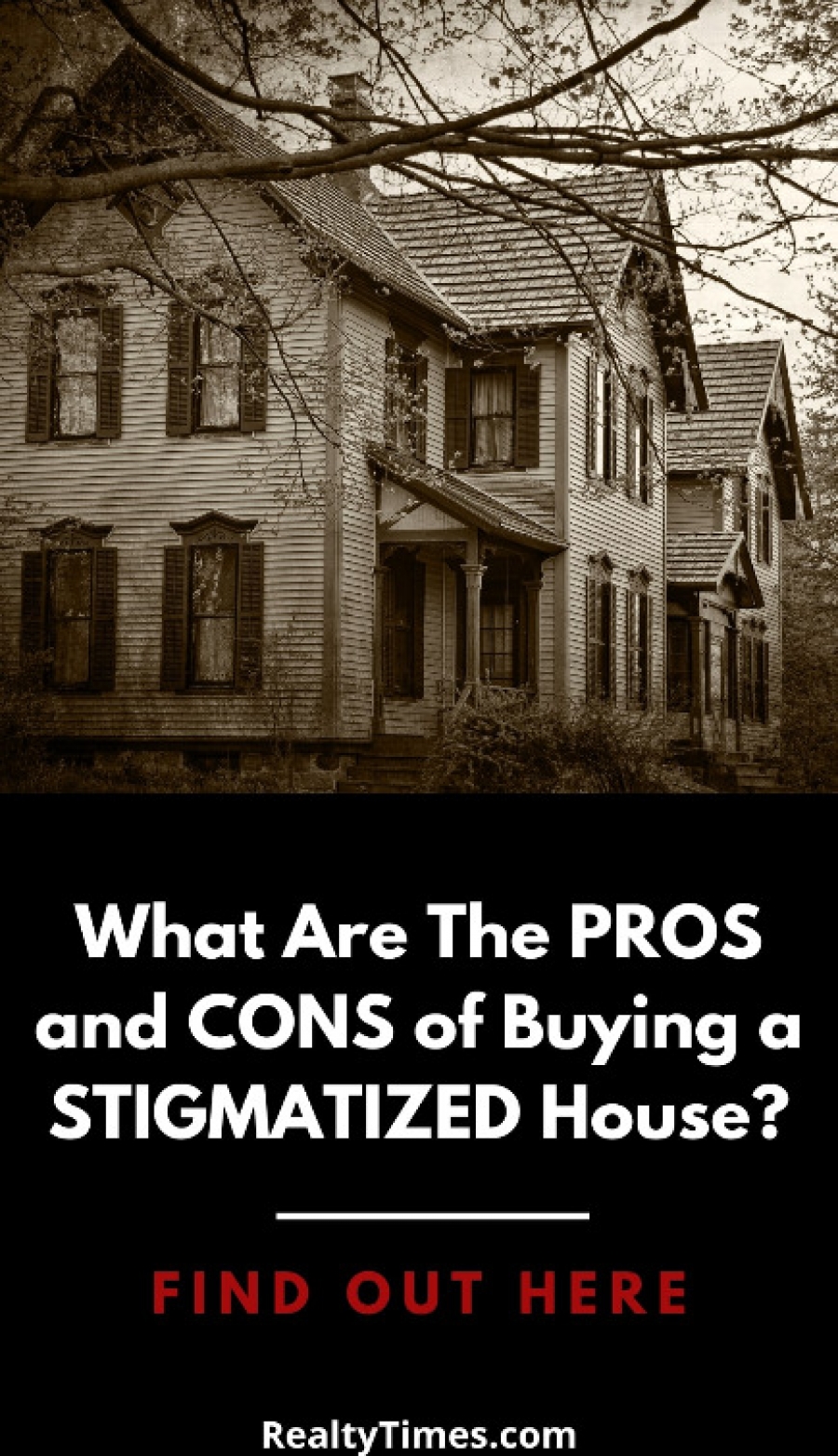Upsides and Downsides of Stigmatized Properties
Regarding real estate, "stigmatized property" refers to a property associated with a stigma that may impact its value or desirability. Various factors, such as a notorious past, supernatural beliefs, or tragic events on the premises, can cause stigmas.
Whether you're a buyer or seller, it's essential to consider the pros and cons of dealing with a stigmatized property. We will explore the advantages and disadvantages associated with these properties.
What Is a Stigmatized Property
Many potential buyers will ask their real estate agent what a stigmatized property is. A stigmatized property is a home with a negative reputation or perception due to specific events, beliefs, or circumstances.
The stigma attached to a property can stem from various factors, such as a history of criminal activities, tragic events, paranormal beliefs, or other controversial incidents that have taken place on or near the premises.
Unlike physical defects that can be visually assessed, stigmas are intangible and subjective. They can vary widely in nature and impact depending on cultural, social, and personal beliefs.
Examples of stigmatized properties include homes where a violent crime or murder occurred, houses believed to be haunted, properties associated with notorious individuals, or dwellings linked to controversial events.
It is essential to note that many stigmas are based on perception rather than the property's actual physical condition. Stigmatized properties may not necessarily have any structural or functional issues, but the negative association can affect their marketability and value.
Potential buyers may have reservations about living in a stigmatized property due to its emotional, psychological, or social implications.
The asking price for homes is often lower on stigmatized properties.
Dealing with stigmatized properties can present unique challenges for both buyers and sellers. Sellers may encounter difficulties in marketing and selling the property, while buyers may need to carefully consider the potential impact of the stigma on their personal well-being, resale value, and prospects.
Understanding what constitutes a stigmatized property and its implications is crucial for making informed decisions in the real estate market.
Understanding Stigmatized Properties
Stigmatized properties have a negative reputation due to specific events or perceptions. Some common examples include properties where violent crimes or murders have occurred, homes believed to be haunted, or houses associated with a historical tragedy.
While these stigmas may not directly impact the physical condition of the property, they can affect the marketability and price.
Pros of Stigmatized Properties
While stigmatized housing properties come with their fair share of challenges, there are also several potential advantages that buyers and sellers should consider. Here are some of the pros associated with stigmatized properties:
Lower Purchase Price
One of the most significant advantages of stigmatized property is the potential for a lower purchase price. Due to the perceived stigma, these properties may stay on the market for extended periods, making sellers more willing to negotiate and accept lower offers.
These homes are often listed for less than other comparable sold properties.
Less Competition
Stigmatized properties often need more interest from buyers, especially those superstitious or concerned about the property's history. With fewer potential buyers, you may have less competition and a better chance of securing the property at a lower price.
Potential For Profit
If you're an investor, a stigmatized property can present an opportunity for profit. By purchasing a property with a stigma attached and addressing the issue through renovation or rebranding, you can overcome the negative perception and increase the property's value.
Unique Marketing Opportunity
Stigmatized homes offer a unique marketing opportunity for sellers who think creatively. By highlighting the property's history or uniqueness, you can attract a specific niche of buyers who may be intrigued by its stigma. This can lead to increased interest and potentially a quicker sale.
Potential For Bargaining Power
As a buyer, the stigma attached to a property can give you added bargaining power during negotiations. Sellers eager to distance themselves from the property's negative associations may be more willing to offer concessions or negotiate on the price. This can allow you to secure a better deal overall.
Historical or Cultural Significance
Sometimes, the stigma associated with a property may stem from its historical or cultural significance. For buyers who appreciate history or desire to preserve significant properties, a stigmatized property can be an opportunity to own a unique heritage. This can add value and meaning to the property beyond its stigma.
Privacy and Seclusion
Stigmatized properties that have gained notoriety may find themselves in more secluded or private locations. This can appeal to buyers who prioritize privacy and a quieter living environment. If the stigma does not significantly impact their lifestyle or beliefs, they may enjoy the seclusion that comes with such properties.
Emotional Attachment
Some buyers are not deterred by the stigma associated with a property and may even feel an emotional connection to its history or story. They may see it as an opportunity to embrace the past, overcome the stigma, and create new memories within the property. This emotional attachment can be a driving factor in their decision to purchase a stigmatized property.
Cons of Stigmatized Properties
While stigmatized properties may offer particular advantages, knowing their potential downsides and challenges is crucial. Some of the cons associated with stigmatized properties include the following:
Marketability Challenges
Homes with stigmatizations can be challenging to sell due to their negative associations. Many buyers may be unwilling to consider a property with a notorious past or paranormal reputation, limiting the pool of potential buyers. This can result in longer listing times and lower resale values.
Psychological Impact on Buyers
The stigma associated with a property can psychologically impact potential buyers. Some individuals may feel uncomfortable living in a stigmatized home with a tragic history or supernatural beliefs, which can affect their overall well-being and enjoyment of the property.
Legal Disclosure Requirements in Some States
In some areas, sellers must disclose specific facts about a property, including stigmas that may impact its value or desirability. Failing to disclose such information can lead to legal consequences. This requirement adds a layer of complexity to the selling process.
Sometimes contingent homes will fall through when a buyer discovers one or more stigmas.
Final Thoughts
Stigmatized properties come with their own set of pros and cons. While they may offer the opportunity for a lower purchase price and potential profit for investors, they also pose challenges in terms of marketability and potential psychological impact on buyers.
Considering buying or selling a stigmatized property, it's crucial to weigh these factors carefully and consult with professionals such as real estate agents, lawyers, and psychologists to make an informed decision. Ultimately, understanding the implications and taking appropriate steps can help navigate the unique challenges associated with stigmatized properties.






